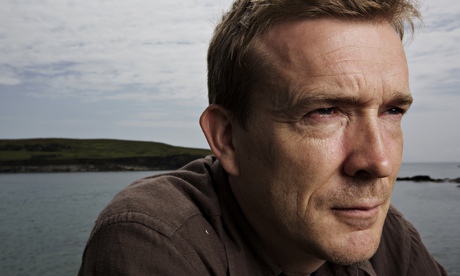
Plenty of readers of the dazzling opening to Hilary Mantel's 2012 winner, Bring Up the Bodies – "His children are falling from the sky", both a tease and a foreshadowing as Cromwell is watching falcons named after his children and the book will trace the fall of his daughter-like former ally Anne Boleyn – will have wondered if the judges could have skipped the longlist and shortlist stages to give her the cheque immediately. Other recent winners' openings have similarly fused brevity and subtlety – Julian Barnes's The Sense of an Ending begins a list with "I remember, in no particular order", Howard Jacobson's The Finkler Question starts "He should have seen it coming."
Brevity is also the dominant trend in the first sentences of the 2014 longlist, favoured by Jacobson again in J ("Mornings weren't good for either of them"), Paul Kingsnorth in his 11th-century novel The Wake ("the night was clere though i slept i seen it"), Joshua Ferris in To Rise Again at a Decent Hour ("The mouth is a weird place") and Richard Flanagan ("Why at the beginning of things is there always light?") in The Narrow Road to the Deep North.
Not dissimilar is the approach of those who greet and induct the reader with unflashy, one- or two-clause sentences, just as Eleanor Catton's 2013 winner The Luminaries did ("The 12 men congregated in the smoking room of the Crown Hotel gave the impression of a party accidentally met"). Karen Joy Fowler is chatty ("So the middle of my story comes in the winter of 1996"), Niall Williams chooses short words too ("The longer my father lived in this world the more he knew there was another to come") and Neel Mukherjee sets things in motion with deceptive simplicity ("A third of the way through the half mile walk from the landlord's house to his hut, Nitai Das's feet began to sway").
If this group make you wonder if what follows will be just as ordinary, those with more cerebral or complicated openings – Siri Hustvedt's line from a fictional academic article, Joseph O'Neill's fussy six-clause sentence, Richard Powers's "overture"mysteriously locating his composer hero "in the tenth year of the altered world" – risk deterring readers by signposting at the outset that their novels won't be accessible.
A comparable gamble is taken by those with overtly literary beginnings. Too long at 72 words to quote, David Mitchell's woman musing in bed seems to draw on Ulysses, but the Molly Bloom ending rather than Joyce's famous opening. Ali Smith's two-page, poetic offering (starting with "Ho this is a mighty twisting thing fast as a") also looks back to 20th‑century modernism.
None of these openings attempts to replicate the bravura of Mantel's, or of other classic first lines such as those of Moby-Dick ("Call me Ishmael"), Nineteen Eighty-Four ("It was a bright cold day in April, and the clocks were striking thirteen"), or The Outsider ("Mother died today"). But one of them has the right stuff, and if it's Mitchell's – currently the favourite with bookies, with the shortlist due to be announced on Tuesday week – the prize will go to the novel with the longest (relatively orthodox) first sentence.

